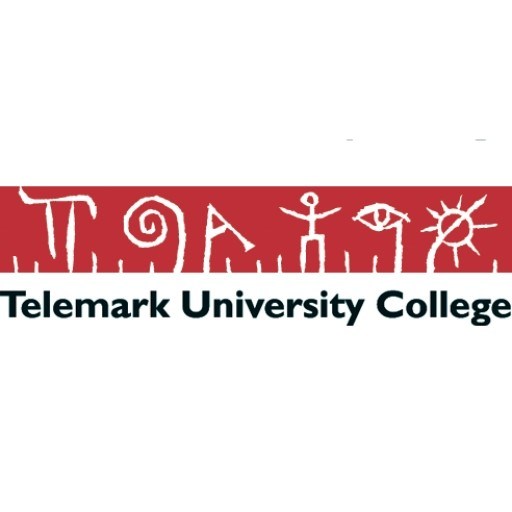A bachelor’s degree in Molecular Environmental Biology at UiT The Arctic University of Norway offers students a comprehensive education in understanding biological processes and environmental interactions at the molecular level. This interdisciplinary programme integrates concepts from biology, chemistry, ecology, and environmental science to prepare graduates for addressing complex environmental challenges through molecular approaches. Throughout the programme, students will study the structure and function of molecules essential for life, including DNA, RNA, proteins, and metabolic pathways, while gaining insight into how these molecular mechanisms influence ecosystems and biodiversity. The curriculum combines theoretical coursework with practical laboratory exercises and fieldwork, allowing students to develop essential skills in molecular techniques, data analysis, and research methods. Students will explore topics such as environmental biotechnology, conservation biology, climate change impacts on biological systems, and sustainable management of natural resources. The programme emphasizes problem-solving, critical thinking, and research capabilities, enabling graduates to contribute to areas such as environmental monitoring, bioremediation, and the development of sustainable biological solutions. UiT provides a stimulating learning environment in the Arctic region, renowned for its unique ecosystems, which serve as living laboratories for environmental research. Students will have opportunities for international exchange and collaboration with research institutions, fostering a global perspective. Completing this programme prepares students for further studies at the master’s level or for careers in research, environmental consultancy, biotechnology, conservation organizations, and other sectors that require expertise in molecular and environmental biology. The programme’s strong emphasis on scientific skills and environmental awareness makes it ideal for students passionate about understanding and protecting our planet’s biological diversity through molecular insights.
The Bachelor's degree program in Biology with a specialization in Molecular Environmental Biology at UiT The Arctic University of Norway offers a comprehensive and interdisciplinary education designed to prepare students for understanding the complex interactions between biological organisms and their environment at the molecular level. This program combines fundamental biological sciences such as cell biology, genetics, and ecology with advanced topics in molecular biology, biochemistry, and environmental science, providing students with a solid foundation for addressing current global challenges related to environmental sustainability, conservation, and biological diversity.
Throughout the program, students will explore various aspects of molecular processes that underpin ecological interactions and environmental changes. The curriculum emphasizes hands-on laboratory work, field studies, and research projects, enabling students to develop practical skills in molecular techniques, data analysis, and scientific communication. Courses in environmental systems, climate change, and biodiversity conservation equip students with the knowledge necessary to assess environmental impacts and develop sustainable solutions.
UiT's unique Arctic location offers unparalleled opportunities for field research and environmental observation, enriching the learning experience and fostering a deep understanding of Arctic ecosystems and their significance in the global context. Students will also benefit from interdisciplinary collaboration, engaging with experts across biology, chemistry, geology, and environmental policy.
The program prepares graduates for diverse career paths, including research, conservation, environmental consultancy, and roles within governmental and non-governmental organizations focused on environmental preservation and sustainable resource management. Additionally, students are encouraged to participate in international exchange programs, internships, and collaborative projects, further broadening their academic and professional horizons.
By the end of this program, students will have developed critical scientific skills, a thorough understanding of molecular environmental processes, and the ability to apply their knowledge to real-world environmental challenges. UiT's Molecular Environmental Biology program is dedicated to fostering innovative thinking, environmental responsibility, and scientific excellence, ensuring that graduates are well-equipped to contribute meaningfully to the preservation and sustainable management of our planet's ecosystems.
The financing of the Bachelor's degree programme in Biology – Molecular Environmental Biology at UiT The Arctic University of Norway is primarily supported through a combination of Norwegian governmental funding, student tuition fees, and supplemental financial aid options. Norwegian residents benefit from publicly funded education, which covers tuition fees for degree programmes at all levels, including this programme, making it accessible without direct tuition costs for most domestic students. International students from selected countries may be subject to tuition fees, which are set annually and can vary depending on the specific regulations at the time of enrolment.
Students are encouraged to apply for various scholarships and grants offered by UiT, the Norwegian government, or European funding agencies. These financial aids are aimed at reducing the economic burden and facilitating access to higher education for a diverse student body. Additionally, students may find part-time employment opportunities, both within the university and in the local Tromsø community, to support their studies financially. The university's career services and international office provide guidance on securing such employment.
Apart from government and personal funding, students can also explore student loan schemes provided via the Norwegian State Educational Loan Fund (Lånekassen), which offers loans and grants specifically designed to support Norwegian and eligible international students. These financial schemes consider students’ individual circumstances and academic progress, providing a safety net to cover living expenses and study-related costs.
Funding for research and development activities within the programme is largely derived from national research grants, EU funding, and private sector collaborations, which also influence the overall availability of resources and infrastructural support for students. The university continually seeks to expand its funding base through partnerships and external grants to ensure high-quality educational experiences and research opportunities are maintained.
Overall, the financing structure for this programme aims to promote equitable access to higher education, accommodate international students, and support the university’s mission of academic excellence and research innovation.
The Bachelor’s degree in Biology – Molecular Environmental Biology at UiT The Arctic University of Norway offers students a comprehensive education in the biological sciences with a focus on molecular and environmental aspects. The program provides students with a thorough understanding of fundamental biological principles, including cell biology, genetics, ecology, and evolution, while emphasizing the molecular mechanisms underlying biological processes. The curriculum is designed to equip students with practical laboratory skills, analytical techniques, and a solid theoretical foundation necessary for careers in research, environmental management, biotechnology, and related fields. Courses include molecular biology, environmental science, biochemistry, microbiology, and ecology, often incorporating fieldwork and research projects to enhance practical learning experience. Students gain experience working in state-of-the-art laboratories and participate in projects that address real-world environmental challenges. The program also emphasizes sustainable development and the impact of human activity on ecosystems, preparing graduates for roles in conservation, environmental policy, and research. The program is delivered in English, attracting international students and fostering a diverse academic environment. Students have access to UiT's extensive research facilities and are encouraged to engage in semester exchanges or international collaborations. The degree typically takes three years of full-time study to complete, culminating in a bachelor's thesis, which allows students to conduct independent research under supervision. Upon graduation, students are well-prepared for further studies at the master's level or entry into various professional fields related to biology and the environment. The program is designed to promote critical thinking, scientific inquiry, and a sustainable approach to solving environmental issues, aligning with the university's commitment to Arctic research and sustainable development goals.





